Taking aim: The policy response to viral hepatitis in Uganda
“What you don’t know can’t hurt you” doesn’t apply to Uganda’s health challenges with hepatitis B and C. Data on prevalence are sparse, particularly for the hepatitis C virus (HCV). Based on small-scale studies, prevalence of HCV is estimated at 1-2% of the total population, says Ponsiano Ocama, chair of the department of medicine and academic hepatologist at Makerere University College of Health Sciences. Estimates for the hepatitis B virus (HBV) are better but based on an HIV impact assessment survey conducted in 2016.
17241
Related content

Endgame: Egypt’s path to eliminating hepatitis B and C
The scale of infection with the hepatitis C virus (HCV) in Egypt was unlike any other country in the world—in 2015 an estimated 6.3% of the population was living with the virus. With a population of 93m at the time, that amounted to close to 6m people. In comparison, the prevalence of hepatitis B virus (HBV) was much lower, estimated at 1% of the total population.
The high prevalence of HCV in Egypt can be traced back to a programme that ran between the 1950s and 1980s to combat schistosomiasis, a water-borne parasitic disease that was endemic in the Nile Delta. Executed by the Egyptian Ministry of Health and Population with the advice and support of the World Health Organisation (WHO), 36m injections were administered to more than 6m people. Undertaken almost entirely with unsterilised and pre-used syringes and needles, the programme inadvertently transmitted HCV, which was not well known at the time. This, combined with weak infection control measures (such as quality controls for blood donations), led to high transmission rates and high prevalence.
Despite high HCV prevalence, the HBV-HCV co-infection rate was found to be just 0.06%, and the geographical distribution of the two infections differed markedly. Exposure to household members who are HBV positive has been found to be the main mode of transmission.
US$3.82bn Estimated economic burden of HCV in Egypt in 2015
The impact of HCV and HBV can be assessed on two fronts: the personal effects of the disease and its impact on economies in terms of employee productivity and direct medical costs. Chronic hepatitis is detrimental to a person’s quality of life, as they can experience fatigue and depression. There is a risk of developing progressive liver damage, which can lead to liver cancer or failure. HCV can increase the risk of type 2 diabetes and other health issues too. Both adversely impact employee productivity through disability and mortality. Specifically for HCV in Egypt, the economic burden was estimated at US$3.82bn in 2015. In terms of direct costs, HCV testing and treatment amounted to some 4% of total health expenditure in 2015 (over US$700m). The same study shows that treating over 300,000 individuals with HCV each year with antivirals could reduce its prevalence by 94% and liver-related deaths by 75% by 2030. Under this scenario, direct costs would be incurred, especially in the short-term to test and treat. But when indirect costs are taken into account, the intervention can be cost saving. Between 2015 and 2030, the estimated savings stand at US$4.6bn for direct costs and US$26.9bn for indirect costs.
Given the scale of the health issue, the response from the Egyptian government has been to craft and implement a national screening programme for chronic hepatitis, focusing on HCV, as well as treating those infected. The programme reached a milestone in May 2019, having screened 50m people across the country in six months. These efforts have been supplemented with infection prevention and control, ongoing surveillance and continued public education to sustain the positive health impact. As many countries in Africa and beyond battle against hepatitis B and C, there are vital lessons to learn from Egypt’s experience.
Reaching millions
As part of the Egyptian government’s commitment to address this health issue, they formed the National Committee for Control of Viral Hepatitis (NCCVH) in 2006, comprising representatives from the Ministry of Health and Population as well as liver and viral hepatitis experts.
The initial challenge was the state of public awareness. Three national studies had concluded that there were serious knowledge gaps in people’s understanding of hepatitis C. The response was to roll out a multi-channel mass education campaign, with clear messages for the public on risk factors (for those who have had surgery, blood transfusions or schistosomiasis injections), transmission modes (including reused syringes and shaving razors) and registering for testing.
In addition to other government initiatives to reach those in rural areas, Gamal Shiha, chairman of the board of trustees at the Egyptian Liver Research Institute and Hospital, and his colleagues at Mansoura University, launched the “Educate, Test and Treat” programme. Implemented across 73 villages, it was designed to educate people about viral hepatitis and start treatment rapidly. Education needs to be the first step, advises Dr Shiha. “If you go to a village without talking to the people and say ‘please come and be tested’, 50% will not come. But after we provide some information, people in the villages were welcoming.”
“When you cure everybody, there will be no transmission. We consider the massive treatment programme one of the pillars of prevention in addition to infection control.”
Dr Imam Waked, professor of hepatology, National Liver Institute
“We spent a lot on the media campaign but it was important to encourage people to come for testing,” says Wahid Doss, chairman of the NCCVH. The ambitious screening programme called “100 million healthy lives” cost between US$250m and US$300m and was partly funded from a loan by the World Bank. Of the 5m people estimated to have been living with HCV in 2014, 2.5m were treated between 2014 and early 2019, and 1.8m are expected to be treated by the end of 2019. As a result, the prevalence of HCV in Egypt is expected to decline from 7% to less than 1%. “When you cure everybody, there will be no transmission,” explains Imam Waked, professor of hepatology at the National Liver Institute at the University of Menoufiya and a member of the NCCVH. “We consider the massive treatment programme one of the pillars of prevention in addition to infection control.”
The 2-3% treatment failures would translate to about 50,000 patients who will need more specialised treatment that is not readily available in Egypt.
The last mile
At each stage from initial screening, there is a risk of drop-off as people fail to come back for further tests or complete treatment. The problem is most acute in rural areas, given long distances from testing and treatment centres and high levels of poverty. Layer this with cultural impediments (particularly among women, who are reluctant to leave behind their obligations at home to travel large distances) and it is easy to see why drop-off-rates can be high. To reduce the number of visits required, the “Educate, Test and Treat” programme led by Dr Shiha found a way to offer all the tests required to initiate treatment on a single day.
Going forward, a key challenge will be dealing with treatment failures. Even in the best scenarios, cure rates are between 97-98%. The 2-3% treatment failures would translate to about 50,000 patients who will need more specialised treatment that is not readily available in Egypt. To protect against transmissions from treatment failures, adoption of infection prevention and control measures can be effective.
A holistic approach
To eliminate HCV as a public health threat by 2023 requires a well-rounded approach beyond the current mass-screening and treatment campaign. These include a range of infection prevention and control policies, funded through a combination of government resources and a loan from the World Bank given to upgrade Egypt’s health system, explains Dr Waked.
To incentivise patients to report on treatment outcomes, the Ministry of Health and Population offered a certificate of cure, which was required to secure employment abroad. This improved reporting rates dramatically to 67%, from 25%
Injection safety, which addresses an important mode of transmission for viral hepatitis, has improved over the years. A recent assessment by the WHO found that all public-sector hospitals and 98% of private-sector hospitals used needles and syringes taken from a sterile packet or fitted with caps. To enhance this, healthcare facilities across Egypt will be required to use only auto-disabled syringes by July 2020. Greater adoption of best practice around preparing injections in a dedicated area and cleaning of needles are required.
To further strengthen infection prevention and control, blood banks will be conducting more stringent analysis of blood donations. In addition, the WHO’s national standards for blood transfusion services are being disseminated across Egypt to ensure that protocols for safe transfusion of blood are followed, complemented by efforts to improve regulatory oversight. This entails the formation of a national blood authority and revising the blood safety law.
Prevention measures for HBV have been in place for decades. Egypt began vaccinating infants in 1992, although testing of pregnant women has not been consistent. One study concludes that the existing vaccination programme provides adequate protection. From early 2019, hospitals have been administering the “birth dose”, delivering the first dose of the vaccine within 24 hours after birth (previously the first dose was given two months after birth). As part of the screening and treatment programme for HCV, vaccinations for HBV were also provided.
For further analysis of progress on eliminating HBV and HCV, the government needs to close the reporting gap. To incentivise patients to report on treatment outcomes, the Ministry of Health and Population offered a certificate of cure, which was required to secure employment abroad. This improved reporting rates dramatically to 67%, from 25%; follow-ups over the phone pushed the rate higher, to 75%. Experts we interviewed suggest that all public and private facilities should be reporting into the same database, with a clear link to individual patient IDs.
Sustaining the positive health impact
Looking ahead, health workers and people themselves must remain vigilant for symptoms of viral hepatitis and risk factors for transmission. But the government in Egypt must continue to provide the tools necessary, including frequent training for health workers as conditions evolve and an extended public education programme.
The screening programme accelerated the efforts to reach the millions who were infected, justified by the scale of the health issue. “It required estimating the magnitude of the problem, establishing treatment centres around the country and securing the political will and financing to provide affordable treatment to the people,” describes Dr Doss. But this must be complemented with effective infection prevention and control policies, including injection and blood safety, to reduce transmission. Dr Shiha concludes, “The government’s direction is very good and the commitment makes me happy. My dream is an Egypt, and a whole world, free of hepatitis C and B.”
Downlaod Arabic PDF here

Value-based healthcare in Sweden: Reaching the next level
The need to get better value from healthcare investment has never been more important as ageing populations and increasing numbers of people with multiple chronic conditions force governments to make limited financial resources go further.
These pressures, along with a greater focus on patient-centred care, have raised the profile of VBHC, especially in European healthcare systems. Sweden, with its highly comprehensive and egalitarian healthcare system, has been a leader in implementing VBHC from the beginning, a fact that was underscored in a 2016 global assessment of VBHC published by The Economist Intelligence Unit.
This paper looks at the ways in which Sweden has implemented VBHC, the areas in which it has faced obstacles and the lessons that it can teach other countries and health systems looking to improve the value of their own healthcare investments.

Breast cancer patients and survivors in the Asia-Pacific workforce
With more older women also working, how will the rising trend of breast cancer survivorship manifest in workplace policies, practices and culture? What challenges do breast cancer survivors face when trying to reintegrate into the workforce, or to continue working during treatment? How can governments, companies and society at large play a constructive role?
This series of reports looks at the situation for breast cancer survivors in Australia, New Zealand and South Korea. It finds that while progress has been made, more needs to be done, particularly in South Korea, where public stigma around cancer remains high.A silent killer in Saudi Arabia: Male cancers
Male cancers, including prostate, testicular and penile cancer, were not among the top health concerns in Saudi Arabia until recently. “Prostate cancer is the number one cancer amongst men in most Western countries, but that hadn’t been the case in Saudi Arabia; it had been number five but now it is number two [among men over the age of 60],” explains Danny Rabah, professor of surgery and head of the division of urology at King Khalid University Hospital in Riyadh.
17202
Related content

Value-based healthcare in Sweden: Reaching the next level
The need to get better value from healthcare investment has never been more important as ageing populations and increasing numbers of people with multiple chronic conditions force governments to make limited financial resources go further.
These pressures, along with a greater focus on patient-centred care, have raised the profile of VBHC, especially in European healthcare systems. Sweden, with its highly comprehensive and egalitarian healthcare system, has been a leader in implementing VBHC from the beginning, a fact that was underscored in a 2016 global assessment of VBHC published by The Economist Intelligence Unit.
This paper looks at the ways in which Sweden has implemented VBHC, the areas in which it has faced obstacles and the lessons that it can teach other countries and health systems looking to improve the value of their own healthcare investments.

Breast cancer patients and survivors in the Asia-Pacific workforce
With more older women also working, how will the rising trend of breast cancer survivorship manifest in workplace policies, practices and culture? What challenges do breast cancer survivors face when trying to reintegrate into the workforce, or to continue working during treatment? How can governments, companies and society at large play a constructive role?
This series of reports looks at the situation for breast cancer survivors in Australia, New Zealand and South Korea. It finds that while progress has been made, more needs to be done, particularly in South Korea, where public stigma around cancer remains high.
The Cost of Silence
Cardiovascular diseases levy a substantial financial toll on individuals, their households and the public finances. These include the costs of hospital treatment, long-term disease management and recurring incidence of heart attacks and stroke. They also include the costs of functional impairment and knock-on costs as families may lose breadwinners or have to withdraw other family members from the workforce to care for a CVD patient. Governments also lose tax revenue due to early retirement and mortality, and can be forced to reallocate public finances from other budgets to maintain an accessible healthcare system in the face of rising costs.
As such, there is a need for more awareness of the ways in which people should actively work to reduce their CVD risk. There is also a need for more primary and secondary preventative support from health agencies, policymakers and nongovernmental groups.
To inform the decisions and strategies of these stakeholders, The Economist Intelligence Unit and EIU Healthcare, its healthcare subsidiary, have conducted a study of the prevalence and costs of the top four modifiable risk factors that contribute to CVDs across the Asian markets of China, Australia, Hong Kong, Japan, Singapore, South Korea, Taiwan and Thailand.
Download the report to learn more.
아시아태평양노동인구중유방암환자및생존자.한국:유방암급증에대한초기대응
아시아태평양노동인구중유방암환자및생존자.한국:유방암급증에대한초기대응은이코노미스트인텔리전스유닛 (Economist Intelligence Unit, EIU)이작성하고화이자(Pfizer)가후원한보고서이다.본보고서는2018년8월~9월한국유방암생존자의일자리복귀를주제로하여실시한인터뷰및연구를바탕으로작성되었다.본보고서는또한이주제와관련하여맥락및배경을제공한국제권위자로구성된자문위원회의의견을바탕으로작성되었다.
한국의유방암투병중이거나완치한여성의수는빠르게증가하고있으며,유방암위험이크게증가하는시기인40세이상여성의노동시장 참여도증가하는추이를보이고있다.이두경향모두전세계적으로일자리복귀에영향을미치고있다.최근수십년동안,한국은세계에서유방암발병률이가장급속하게증가한국가중하나이다.
한국:핵심데이터
Related content

Value-based healthcare in Sweden: Reaching the next level
The need to get better value from healthcare investment has never been more important as ageing populations and increasing numbers of people with multiple chronic conditions force governments to make limited financial resources go further.
These pressures, along with a greater focus on patient-centred care, have raised the profile of VBHC, especially in European healthcare systems. Sweden, with its highly comprehensive and egalitarian healthcare system, has been a leader in implementing VBHC from the beginning, a fact that was underscored in a 2016 global assessment of VBHC published by The Economist Intelligence Unit.
This paper looks at the ways in which Sweden has implemented VBHC, the areas in which it has faced obstacles and the lessons that it can teach other countries and health systems looking to improve the value of their own healthcare investments.

Breast cancer patients and survivors in the Asia-Pacific workforce
With more older women also working, how will the rising trend of breast cancer survivorship manifest in workplace policies, practices and culture? What challenges do breast cancer survivors face when trying to reintegrate into the workforce, or to continue working during treatment? How can governments, companies and society at large play a constructive role?
This series of reports looks at the situation for breast cancer survivors in Australia, New Zealand and South Korea. It finds that while progress has been made, more needs to be done, particularly in South Korea, where public stigma around cancer remains high.
The Cost of Silence
Cardiovascular diseases levy a substantial financial toll on individuals, their households and the public finances. These include the costs of hospital treatment, long-term disease management and recurring incidence of heart attacks and stroke. They also include the costs of functional impairment and knock-on costs as families may lose breadwinners or have to withdraw other family members from the workforce to care for a CVD patient. Governments also lose tax revenue due to early retirement and mortality, and can be forced to reallocate public finances from other budgets to maintain an accessible healthcare system in the face of rising costs.
As such, there is a need for more awareness of the ways in which people should actively work to reduce their CVD risk. There is also a need for more primary and secondary preventative support from health agencies, policymakers and nongovernmental groups.
To inform the decisions and strategies of these stakeholders, The Economist Intelligence Unit and EIU Healthcare, its healthcare subsidiary, have conducted a study of the prevalence and costs of the top four modifiable risk factors that contribute to CVDs across the Asian markets of China, Australia, Hong Kong, Japan, Singapore, South Korea, Taiwan and Thailand.
Download the report to learn more.
Breast cancer patients and survivors in the Asia-Pacific workforce
With more older women also working, how will the rising trend of breast cancer survivorship manifest in workplace policies, practices and culture? What challenges do breast cancer survivors face when trying to reintegrate into the workforce, or to continue working during treatment? How can governments, companies and society at large play a constructive role?
More from this series
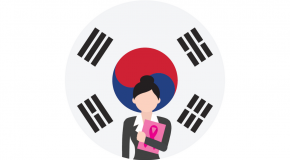
white paper
Breast cancer patients and survivors in the Asia-Pacific workforce. South K...
Breast cancer patients and survivors in the Asia-Pacific workforce. South Korea: An incipient response to a ballooning
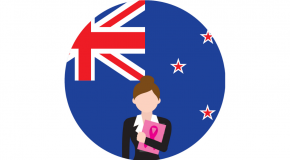
white paper
Breast cancer patients and survivors in the Asia-Pacific workforce. New Zea...
Breast cancer patients and survivors in the Asia-Pacific workforce. New Zealand: Rising to a growing challenge is an
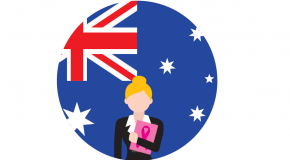
white paper
Breast cancer patients and survivors in the Asia-Pacific workforce. Austral...
Breast cancer patients and survivors in the Asia-Pacific workforce. Australia: Forging a path in Asia is an Economist

white paper
아시아태평양노동인구중유방암환자및생존자.한국:유방�...
Related content

Value-based healthcare in Sweden: Reaching the next level
The need to get better value from healthcare investment has never been more important as ageing populations and increasing numbers of people with multiple chronic conditions force governments to make limited financial resources go further.
These pressures, along with a greater focus on patient-centred care, have raised the profile of VBHC, especially in European healthcare systems. Sweden, with its highly comprehensive and egalitarian healthcare system, has been a leader in implementing VBHC from the beginning, a fact that was underscored in a 2016 global assessment of VBHC published by The Economist Intelligence Unit.
This paper looks at the ways in which Sweden has implemented VBHC, the areas in which it has faced obstacles and the lessons that it can teach other countries and health systems looking to improve the value of their own healthcare investments.

The Cost of Silence
Cardiovascular diseases levy a substantial financial toll on individuals, their households and the public finances. These include the costs of hospital treatment, long-term disease management and recurring incidence of heart attacks and stroke. They also include the costs of functional impairment and knock-on costs as families may lose breadwinners or have to withdraw other family members from the workforce to care for a CVD patient. Governments also lose tax revenue due to early retirement and mortality, and can be forced to reallocate public finances from other budgets to maintain an accessible healthcare system in the face of rising costs.
As such, there is a need for more awareness of the ways in which people should actively work to reduce their CVD risk. There is also a need for more primary and secondary preventative support from health agencies, policymakers and nongovernmental groups.
To inform the decisions and strategies of these stakeholders, The Economist Intelligence Unit and EIU Healthcare, its healthcare subsidiary, have conducted a study of the prevalence and costs of the top four modifiable risk factors that contribute to CVDs across the Asian markets of China, Australia, Hong Kong, Japan, Singapore, South Korea, Taiwan and Thailand.
Download the report to learn more.

Resetting the agenda: How ESG is shaping our future
The Covid-19 pandemic has exposed a wealth of interconnections – between ecological and human wellbeing, between economic and environmental fragility, between social inequality and health outcomes, and more. The consequences of these connections are now filtering through, reshaping our society and economy.
In this setting, the need to integrate environmental, social and governance (ESG) factors when investing has become even more critical. Institutional investors must employ ESG not just to mitigate risks and identify opportunities, but to engage with companies to bring about the positive change needed to drive a sustainable economic recovery in the post-Covid world.
In order to understand how ESG could be both a new performance marker and a growth driver in this environment, as well as how institutional investors are using ESG to make investment decisions and to assess their own performance, The Economist Intelligence Unit (EIU), sponsored by UBS, surveyed 450 institutional investors working in asset and wealth management firms, corporate pension funds, endowment funds, family offices, government agencies, hedge funds, insurance companies, pension funds, sovereign wealth funds and reinsurers in North America, Europe and Asia-Pacific.
Download the report and infographic to learn more.
Breast cancer patients and survivors in the Asia-Pacific workforce. South Korea: An incipient response to a ballooning problem
Breast cancer patients and survivors in the Asia-Pacific workforce. South Korea: An incipient response to a ballooning problem is an Economist Intelligence Unit report, sponsored by Pfizer. This report draws upon interviews and research conducted in August-September 2018 on the topic of return-to-work for breast cancer survivors in South Korea. It also draws upon an advisory board of global authorities who provided the context and background for this topic.
Related content

Value-based healthcare in Sweden: Reaching the next level
The need to get better value from healthcare investment has never been more important as ageing populations and increasing numbers of people with multiple chronic conditions force governments to make limited financial resources go further.
These pressures, along with a greater focus on patient-centred care, have raised the profile of VBHC, especially in European healthcare systems. Sweden, with its highly comprehensive and egalitarian healthcare system, has been a leader in implementing VBHC from the beginning, a fact that was underscored in a 2016 global assessment of VBHC published by The Economist Intelligence Unit.
This paper looks at the ways in which Sweden has implemented VBHC, the areas in which it has faced obstacles and the lessons that it can teach other countries and health systems looking to improve the value of their own healthcare investments.

Breast cancer patients and survivors in the Asia-Pacific workforce
With more older women also working, how will the rising trend of breast cancer survivorship manifest in workplace policies, practices and culture? What challenges do breast cancer survivors face when trying to reintegrate into the workforce, or to continue working during treatment? How can governments, companies and society at large play a constructive role?
This series of reports looks at the situation for breast cancer survivors in Australia, New Zealand and South Korea. It finds that while progress has been made, more needs to be done, particularly in South Korea, where public stigma around cancer remains high.
The Cost of Silence
Cardiovascular diseases levy a substantial financial toll on individuals, their households and the public finances. These include the costs of hospital treatment, long-term disease management and recurring incidence of heart attacks and stroke. They also include the costs of functional impairment and knock-on costs as families may lose breadwinners or have to withdraw other family members from the workforce to care for a CVD patient. Governments also lose tax revenue due to early retirement and mortality, and can be forced to reallocate public finances from other budgets to maintain an accessible healthcare system in the face of rising costs.
As such, there is a need for more awareness of the ways in which people should actively work to reduce their CVD risk. There is also a need for more primary and secondary preventative support from health agencies, policymakers and nongovernmental groups.
To inform the decisions and strategies of these stakeholders, The Economist Intelligence Unit and EIU Healthcare, its healthcare subsidiary, have conducted a study of the prevalence and costs of the top four modifiable risk factors that contribute to CVDs across the Asian markets of China, Australia, Hong Kong, Japan, Singapore, South Korea, Taiwan and Thailand.
Download the report to learn more.
Breast cancer patients and survivors in the Asia-Pacific workforce. New Zealand: Rising to a growing challenge
Breast cancer patients and survivors in the Asia-Pacific workforce. New Zealand: Rising to a growing challenge is an Economist Intelligence Unit report, sponsored by Pfizer New Zealand Ltd, Auckland, New Zealand. This report draws upon interviews and research conducted in August-September 2018 on the topic of return-to-work for breast cancer survivors in New Zealand. It also draws upon an advisory board of global authorities who provided context and background on this topic.
Related content

Value-based healthcare in Sweden: Reaching the next level
The need to get better value from healthcare investment has never been more important as ageing populations and increasing numbers of people with multiple chronic conditions force governments to make limited financial resources go further.
These pressures, along with a greater focus on patient-centred care, have raised the profile of VBHC, especially in European healthcare systems. Sweden, with its highly comprehensive and egalitarian healthcare system, has been a leader in implementing VBHC from the beginning, a fact that was underscored in a 2016 global assessment of VBHC published by The Economist Intelligence Unit.
This paper looks at the ways in which Sweden has implemented VBHC, the areas in which it has faced obstacles and the lessons that it can teach other countries and health systems looking to improve the value of their own healthcare investments.

Breast cancer patients and survivors in the Asia-Pacific workforce
With more older women also working, how will the rising trend of breast cancer survivorship manifest in workplace policies, practices and culture? What challenges do breast cancer survivors face when trying to reintegrate into the workforce, or to continue working during treatment? How can governments, companies and society at large play a constructive role?
This series of reports looks at the situation for breast cancer survivors in Australia, New Zealand and South Korea. It finds that while progress has been made, more needs to be done, particularly in South Korea, where public stigma around cancer remains high.
The Cost of Silence
Cardiovascular diseases levy a substantial financial toll on individuals, their households and the public finances. These include the costs of hospital treatment, long-term disease management and recurring incidence of heart attacks and stroke. They also include the costs of functional impairment and knock-on costs as families may lose breadwinners or have to withdraw other family members from the workforce to care for a CVD patient. Governments also lose tax revenue due to early retirement and mortality, and can be forced to reallocate public finances from other budgets to maintain an accessible healthcare system in the face of rising costs.
As such, there is a need for more awareness of the ways in which people should actively work to reduce their CVD risk. There is also a need for more primary and secondary preventative support from health agencies, policymakers and nongovernmental groups.
To inform the decisions and strategies of these stakeholders, The Economist Intelligence Unit and EIU Healthcare, its healthcare subsidiary, have conducted a study of the prevalence and costs of the top four modifiable risk factors that contribute to CVDs across the Asian markets of China, Australia, Hong Kong, Japan, Singapore, South Korea, Taiwan and Thailand.
Download the report to learn more.
Breast cancer patients and survivors in the Asia-Pacific workforce. Australia: Forging a path in Asia
Breast cancer patients and survivors in the Asia-Pacific workforce. Australia: Forging a path in Asia is an Economist Intelligence Unit report, sponsored by Pfizer Australia Pty Ltd, Sydney Australia. This report draws upon interviews and research conducted in August-September 2018 on the topic of return-to-work for breast cancer survivors in Australia. It also draws upon an advisory board of global authorities who provided context and background on this topic.
Related content

Value-based healthcare in Sweden: Reaching the next level
The need to get better value from healthcare investment has never been more important as ageing populations and increasing numbers of people with multiple chronic conditions force governments to make limited financial resources go further.
These pressures, along with a greater focus on patient-centred care, have raised the profile of VBHC, especially in European healthcare systems. Sweden, with its highly comprehensive and egalitarian healthcare system, has been a leader in implementing VBHC from the beginning, a fact that was underscored in a 2016 global assessment of VBHC published by The Economist Intelligence Unit.
This paper looks at the ways in which Sweden has implemented VBHC, the areas in which it has faced obstacles and the lessons that it can teach other countries and health systems looking to improve the value of their own healthcare investments.

Breast cancer patients and survivors in the Asia-Pacific workforce
With more older women also working, how will the rising trend of breast cancer survivorship manifest in workplace policies, practices and culture? What challenges do breast cancer survivors face when trying to reintegrate into the workforce, or to continue working during treatment? How can governments, companies and society at large play a constructive role?
This series of reports looks at the situation for breast cancer survivors in Australia, New Zealand and South Korea. It finds that while progress has been made, more needs to be done, particularly in South Korea, where public stigma around cancer remains high.
The Cost of Silence
Cardiovascular diseases levy a substantial financial toll on individuals, their households and the public finances. These include the costs of hospital treatment, long-term disease management and recurring incidence of heart attacks and stroke. They also include the costs of functional impairment and knock-on costs as families may lose breadwinners or have to withdraw other family members from the workforce to care for a CVD patient. Governments also lose tax revenue due to early retirement and mortality, and can be forced to reallocate public finances from other budgets to maintain an accessible healthcare system in the face of rising costs.
As such, there is a need for more awareness of the ways in which people should actively work to reduce their CVD risk. There is also a need for more primary and secondary preventative support from health agencies, policymakers and nongovernmental groups.
To inform the decisions and strategies of these stakeholders, The Economist Intelligence Unit and EIU Healthcare, its healthcare subsidiary, have conducted a study of the prevalence and costs of the top four modifiable risk factors that contribute to CVDs across the Asian markets of China, Australia, Hong Kong, Japan, Singapore, South Korea, Taiwan and Thailand.
Download the report to learn more.
Lung cancer in Latin America: Time to stop looking away (Spanish)
Please view above a video infographic (in Spanish) summarising the key findings of our "Lung Cancer in Latin America: Time to stop looking away' report.
Related content

Value-based healthcare in Sweden: Reaching the next level
The need to get better value from healthcare investment has never been more important as ageing populations and increasing numbers of people with multiple chronic conditions force governments to make limited financial resources go further.
These pressures, along with a greater focus on patient-centred care, have raised the profile of VBHC, especially in European healthcare systems. Sweden, with its highly comprehensive and egalitarian healthcare system, has been a leader in implementing VBHC from the beginning, a fact that was underscored in a 2016 global assessment of VBHC published by The Economist Intelligence Unit.
This paper looks at the ways in which Sweden has implemented VBHC, the areas in which it has faced obstacles and the lessons that it can teach other countries and health systems looking to improve the value of their own healthcare investments.

Breast cancer patients and survivors in the Asia-Pacific workforce
With more older women also working, how will the rising trend of breast cancer survivorship manifest in workplace policies, practices and culture? What challenges do breast cancer survivors face when trying to reintegrate into the workforce, or to continue working during treatment? How can governments, companies and society at large play a constructive role?
This series of reports looks at the situation for breast cancer survivors in Australia, New Zealand and South Korea. It finds that while progress has been made, more needs to be done, particularly in South Korea, where public stigma around cancer remains high.
The Cost of Silence
Cardiovascular diseases levy a substantial financial toll on individuals, their households and the public finances. These include the costs of hospital treatment, long-term disease management and recurring incidence of heart attacks and stroke. They also include the costs of functional impairment and knock-on costs as families may lose breadwinners or have to withdraw other family members from the workforce to care for a CVD patient. Governments also lose tax revenue due to early retirement and mortality, and can be forced to reallocate public finances from other budgets to maintain an accessible healthcare system in the face of rising costs.
As such, there is a need for more awareness of the ways in which people should actively work to reduce their CVD risk. There is also a need for more primary and secondary preventative support from health agencies, policymakers and nongovernmental groups.
To inform the decisions and strategies of these stakeholders, The Economist Intelligence Unit and EIU Healthcare, its healthcare subsidiary, have conducted a study of the prevalence and costs of the top four modifiable risk factors that contribute to CVDs across the Asian markets of China, Australia, Hong Kong, Japan, Singapore, South Korea, Taiwan and Thailand.
Download the report to learn more.
Lung cancer in Latin America: Time to stop looking away (English)
Please view above a video infographic (in English) summarising the key findings of our "Lung Cancer in Latin America: Time to stop looking away' report.
Related content

Value-based healthcare in Sweden: Reaching the next level
The need to get better value from healthcare investment has never been more important as ageing populations and increasing numbers of people with multiple chronic conditions force governments to make limited financial resources go further.
These pressures, along with a greater focus on patient-centred care, have raised the profile of VBHC, especially in European healthcare systems. Sweden, with its highly comprehensive and egalitarian healthcare system, has been a leader in implementing VBHC from the beginning, a fact that was underscored in a 2016 global assessment of VBHC published by The Economist Intelligence Unit.
This paper looks at the ways in which Sweden has implemented VBHC, the areas in which it has faced obstacles and the lessons that it can teach other countries and health systems looking to improve the value of their own healthcare investments.

Breast cancer patients and survivors in the Asia-Pacific workforce
With more older women also working, how will the rising trend of breast cancer survivorship manifest in workplace policies, practices and culture? What challenges do breast cancer survivors face when trying to reintegrate into the workforce, or to continue working during treatment? How can governments, companies and society at large play a constructive role?
This series of reports looks at the situation for breast cancer survivors in Australia, New Zealand and South Korea. It finds that while progress has been made, more needs to be done, particularly in South Korea, where public stigma around cancer remains high.
The Cost of Silence
Cardiovascular diseases levy a substantial financial toll on individuals, their households and the public finances. These include the costs of hospital treatment, long-term disease management and recurring incidence of heart attacks and stroke. They also include the costs of functional impairment and knock-on costs as families may lose breadwinners or have to withdraw other family members from the workforce to care for a CVD patient. Governments also lose tax revenue due to early retirement and mortality, and can be forced to reallocate public finances from other budgets to maintain an accessible healthcare system in the face of rising costs.
As such, there is a need for more awareness of the ways in which people should actively work to reduce their CVD risk. There is also a need for more primary and secondary preventative support from health agencies, policymakers and nongovernmental groups.
To inform the decisions and strategies of these stakeholders, The Economist Intelligence Unit and EIU Healthcare, its healthcare subsidiary, have conducted a study of the prevalence and costs of the top four modifiable risk factors that contribute to CVDs across the Asian markets of China, Australia, Hong Kong, Japan, Singapore, South Korea, Taiwan and Thailand.
Download the report to learn more.
Lung cancer in Latin America: Time to stop looking away
The study looks in detail at the disease burden as well as the economic and social burden of lung cancer in the region. The Economist Intelligence Unit developed a model to provide insight into the economic impact of lung cancer in the 12 study countries in Latin America.
More from this series
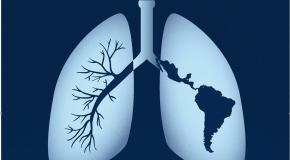
video
Lung cancer in Latin America: Time to stop looking away (English)
Please view above a video infographic (in English) summarising the key findings of our "Lung Cancer in Latin America:

video
Lung cancer in Latin America: Time to stop looking away (Spanish)
Please view above a video infographic (in Spanish) summarising the key findings of our "Lung Cancer in Latin America:
Related content
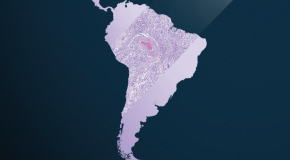
Cancer control, access and inequality in Latin America: A tale of light and...
The Economist Intelligence Unit has created the Latin America Cancer Control Scorecard (LACCS) to assess cancer-control policies and programmes in 12 Latin American countries. The LACCS shows that a number of countries in the region have put in place or strengthened their National Cancer Control Plans. However, plans are often not sufficiently comprehensive and lack funding. Progress has also been made in rolling out population-based cancer registries in the region, but issues with data quality and coverage persist. Other areas with room for improvement include high rates of late-stage diagnosis, insufficient resources for current and future cancer-care needs, fragmented healthcare systems and inequalities in access to care.
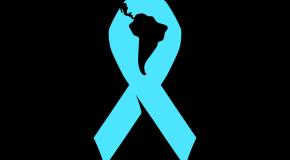
Tackling the burden of prostate cancer in Latin America: The prospects for...
Prostate cancer is placing an ever-growing burden on already strained Latin American healthcare systems, as both the incidence of the disease and mortality rates rise. For the purposes of this report, Latin America encompasses the territory from the northern border of Mexico to the southern tip of South America, including the Caribbean.
Prostate cancer is the leading cause of male cancer-related deaths in the region, and the disease and economic burden is set to rise in tandem with longevity and changes in lifestyle and diet.
Addressing this rapid growth is thus an urgent task, and one that higher-income countries around the world have addressed with some success through patient-centred healthcare. In the US, for example, integrated-care systems have been delivered though accountable care organisations that focus on patient needs.
The World Health Organisation (WHO) says that "integrated people-centred health services means putting the needs of people and communities, not diseases, at the centre of health systems, and empowering people to take charge of their own health".[i] However, integrated and patient-centred healthcare has seen a slow rate of adoption in the Latin America region. This suggests that much work needs to be done to sharpen the focus on respecting and responding to patient needs.
This report draws on findings from an Economist Intelligence Unit study, Assessing the burden of Prostate Cancer in Brazil,[ii] and in-depth interviews with ten experts on cancer care in the region. It assesses current prostate-cancer developments and provides real-world examples from Brazil, Colombia, Costa Rica and Mexico of how institutions are addressing, or failing to address, prostate cancer through a patient-centred approach.
Learn more by downloading our 'Assessing the burden of Prostate Cancer in Brazil' report below.
[i] WHO, WHO Framework on integrated people-centred health services. Available at: http://www.who.int/servicedeliverysafety/areas/people-centred-care/en/
[ii] The Economist Intelligence Unit, Assessing the burden of Prostate Cancer in Brazil, October 2016.

Value-based healthcare in Sweden: Reaching the next level
The need to get better value from healthcare investment has never been more important as ageing populations and increasing numbers of people with multiple chronic conditions force governments to make limited financial resources go further.
These pressures, along with a greater focus on patient-centred care, have raised the profile of VBHC, especially in European healthcare systems. Sweden, with its highly comprehensive and egalitarian healthcare system, has been a leader in implementing VBHC from the beginning, a fact that was underscored in a 2016 global assessment of VBHC published by The Economist Intelligence Unit.
This paper looks at the ways in which Sweden has implemented VBHC, the areas in which it has faced obstacles and the lessons that it can teach other countries and health systems looking to improve the value of their own healthcare investments.

